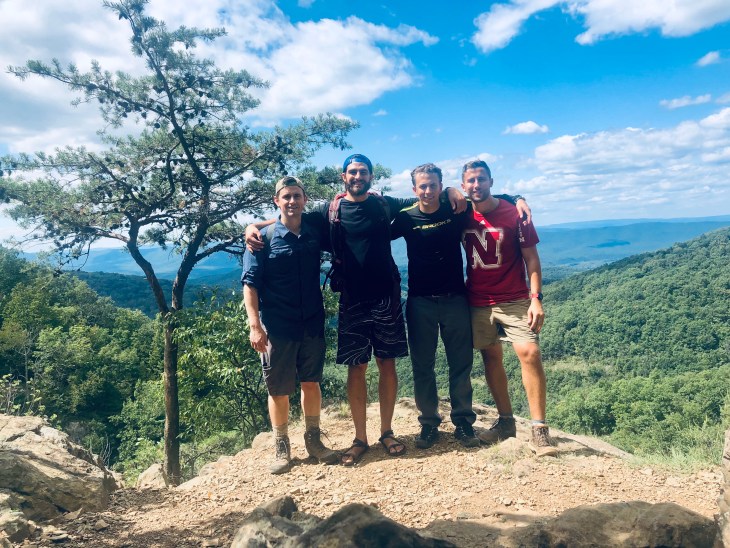
About a year ago I wrote about adjusting your Point of View through voluntary hardship. If you lead a cushy white collar lifestyle than doing something hard like a long hike or fasting and/or volunteering can help bring to mind all there is to feel grateful for.
Again I was reminded of this after spending two nights sleeping in the dirt as I camped out in Shenandoah National Park with three of my closest friends. Even with perfect weather the simple act of not having a bed or a shower for two nights made me infinitely more thankful when I got to enjoy those luxuries back on Sunday. Not everyone gets to enjoy such luxuries and it is important not to take them for granted.
All of this brings me back to what I think to be one of the most important principles of Stoicism: prepare for hard times during the good times. Pulling directly from the passage I quoted last year from Seneca’s letter On Festivals and Fasting:
“I am so firmly determined, however, to test the constancy of your mind that, drawing from the teachings of great men, I shall give you also a lesson: Set aside a certain number of days, during which you shall be content with the scantiest and cheapest fare, with coarse and rough dress, saying to yourself the while: “Is this the condition that I feared?” 6. It is precisely in times of immunity from care that the soul should toughen itself beforehand for occasions of greater stress, and it is while Fortune is kind that it should fortify itself against her violence. In days of peace the soldier performs manoeuvres, throws up earthworks with no enemy in sight, and wearies himself by gratuitous toil, in order that he may be equal to unavoidable toil. If you would not have a man flinch when the crisis comes, train him before it comes. Such is the course which those men[4] have followed who, in their imitation of poverty, have every month come almost to want, that they might never recoil from what they had so often rehearsed.” Seneca continues, “8. There is no reason, however, why you should think that you are doing anything great; for you will merely be doing what many thousands of slaves and many thousands of poor men are doing every day. But you may credit yourself with this item, – that you will not be doing it under compulsion, and that it will be as easy for you to endure it permanently as to make the experiment from time to time. Let us practise our strokes on the “dummy”;[6] let us become intimate with poverty, so that Fortune may not catch us off our guard. We shall be rich with all the more comfort, if we once learn how far poverty is from being a burden.”
My friend Mark and I were talking on the phone later that evening of treating our camping trips like our own Stoic retreats. Just like Seneca encouraging young Lucilius to set aside a certain number of days to eat cheaply and dress roughly, the same can be achieved through stints in the woods. For me, it was important to reread this letter and take special note of the line: There is no reason why you should think that you are doing anything great; for you will merely be doing what many thousands of poor people are doing every day. Yes, enduring voluntary hardship is a good and healthy practice so that fortune does not catch one off guard, but know too that people have done it for much longer and harder periods not under their own free will.
Similar to all healthy practices, be it meditation, weight lifting, or Brazilian Jiu-Jitsu, the juice lies in the consistent effort over time for it is a perishable skill. I cannot sweep the floor once a year and expect it to remain clean. Likewise, cultivating gratitude through this practice needs to be done consistently over time. Which is why I will find myself back in the woods again on 9/27!

broom by Alberto Guerra Quintanilla from the Noun Project

[…] our own thoughts and free from inputs of other minds. My solitude typically manifests itself on stoic retreats or long […]
[…] Of course, after walking 13 miles and building a campfire – the potato with salt & oil did taste exceptionally well. Sleeping on the ground in 20 degree weather also made a bed and a shower on Sunday that much more luxurious. It is for all these reasons that I view camping as a Stoic Retreat. […]
[…] of this blog know that I’m a big proponent of digital minimalism, long form content, and generally being off the grid. That hasn’t changed, but I did make a adjustment in my perspective because I do think there […]